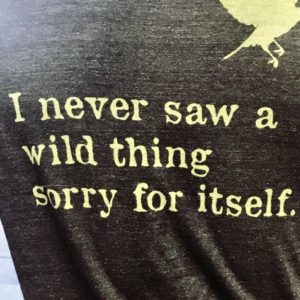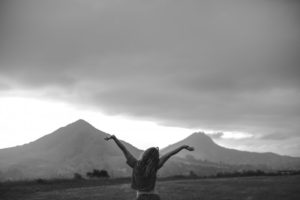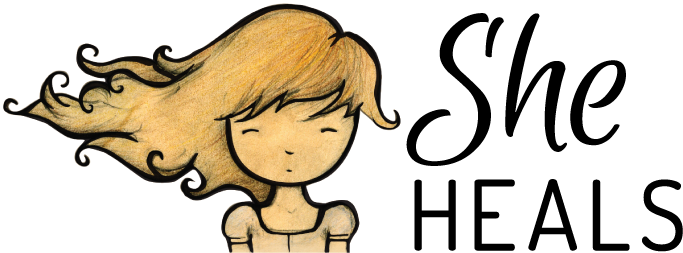Growing up, I used to joke that I was born two hundred years too late.
This was a silly thing to say if you look at women’s rights, economics, short life-spans, and so many other factors pre-industrial women had to deal with. As a pre-teen, I was too young to understand history for this statement to make sense, yet there was a reason I would say this. Aspects to industrial society which didn’t feel right consistently left me with a feeling of displacement.
Aspects such as unquestioned use of electricity, the fast pace, overstimulation, sedentary lifestyles, mass-production of environmentally destructive consumer goods, the need for so many drugs, and what seemed to be a large-scale lack of systems thinking … drove this displaced feeling. Even if I wasn’t able to name it. One thing I wasn’t clear on was how far back I’d need to look to understand myself as an animal (albeit there’s value in learning any history.) It was looking back thousands of years which has helped me the most.
I made these jokes as a child and teenager who grew up seeing far too much dysfunction to feel well-adjusted in this culture. So I’ve often questioned if it’s personal trauma which would drive this displaced feeling. Sure, that’s part of it. But I believe feeling displaced in modern society is quite common and contributes to how we relate to and treat our chronic illnesses.
I also believe that the home I found within the ancestral health and ‘Paleo” community spoke directly to the little girl in me who would make such strange jokes. And within this community of research and application, I began to feel at home in my own animal skin. And I began to see my symptoms differently.

It’s easy to develop insecurities about our own value as a contributing member of society if we consistently show up as: out of it, tired, sad, foggy, inflamed, incompetent, anxious, prematurely aged, unfocused, distracted, infertile, restricted, depressed, repressed, bloated, (h)angry, addicted to various substances, or living without basic metabolic functions. These poor states of health can hijack our attempts at being a fertile mate, innate creator, or even a good friend. Although my views may seem extreme, it’s clear we’re more likely to have societal dysfunctions when so many individuals have biological dysfunctions.
Life can also feel isolating when we’re chronically unwell in a culture which promotes behaviors leading to chronic illness in the first place. This is where intentionally stepping back from our personal struggles and the norms by which we live and observing through a broader lens can make all the difference in our health pursuits.
Let’s call this broader lens an evolutionary template.
Before adopting an evolutionary template for healthcare, root-cause healing often felt isolating and burdensome. Myself and others with debilitating chronic symptoms were victims carrying the burden of self-healing amongst healthy masses. But the insights I gained through this broader evolutionary lens became a consistent source of empowerment for me, leaving me with greater agency to create applicable solutions to otherwise shitty life experiences.

Finding strength in our wildness.
Cause let’s face it, chronic illness fucking sucks. It can pull the rug out from beneath us, take away our futures, and deplete the confidence we all ought to have in our capacities to live a good life. You cannot chase your dreams when you can barely function. You cannot find a great love when you don’t love your own life nor your own tired face in the mirror. And what’s worst is that you cannot help but blame yourself for being so goddamn sensitive in such an individualistic culture with so much unrealistic images of what health looks like.
But what if we didn’t have to walk around with the belief that we’ve been dealt bad skin, bad teeth, bad joints, poor body composition, weak digestion, low libido, mood disorders, psychotic episodes, and so many other symptoms which often fall under the umbrella of “genetic predispositions?” I’m not implying we can always reverse or even avoid all of these issues… but what if understanding our history and evolution gave us a lot more power to do so?
I firmly believe that adopting some historical and evolutionary context can empower us to explore holistic options where we’d otherwise reach for the next pill to treat misunderstood symptoms. And until we become these holistic explorers, it’s impossible to know what’s truly possible for us and our health.

Root-cause healing offers no magic pill.
What this lens is and what it offers Us
An evolutionary lens is a mental model or framework which can be applied to human health and behavior. This lens offers us perspective and insights in the form of time-frames and scientific theories regarding human nature. It offers us clinical data to better understand human biochemistry and to understand why our bodies and minds respond to the modern world as they do. The world we live in has changed exponentially in a very small amount of time, yet much our human wiring has not changed.
From an evolutionary perspective, we’re currently living with a drastic mismatch between what our species has adapted to handle and what our current environment is providing. This mismatch forms the basis of individual and collective disfunction and chronic illness.
Yes, Homo Sapiens and all previous ancestors do have a lot of mysteries. There’s A LOT still left to speculation. However, we do have enough data to know that much of human history was spent without ANY of the modern conveniences we currently rely on for life. And many of these conveniences — as convenient and “normal” as they are — also hijack our hormones, appetite, immune system, and alter our very genetic expression.
There’s no doubt that life was no picnic for early man, yet we can learn so much by looking back.
This lens isn’t about adopting another religious myth to get all righteous — it’s the formula for a perspective shift which involves history, science, and a systems approach to life.
All of recorded history dates back no more than 8,000 years, yet looking back further than recorded history and understanding why I might feel and behave in the ways that I do has provided me with immense strength and meaning. My hope is that this lens can support others in a similarly powerful way.
How might the LACK of an evolutionary template create obstacles to healing?
- When we’re unwell, we can play a blame game. We can place ourselves in a position where blame is a source of empowerment. Blaming — whether ourselves, the medical establishment, pharmaceuticals, agriculture, industrialization, bad science, greedy food corporations, animal consumption, genes or our parents’ choices, or even isolating foods like sugar and gluten — creates a myopic perspective. Blame often fuels dogmatism instead of wisdom. Despite the necessity to identify factors contributing to our illness in order to heal, we heal most thoroughly when we can access our innate wisdom and resilience, not when we dogmatically point fingers.
- We can adopt dogmatic beliefs about diet. When we’re aiming to heal, dogmatism can be a big blinder. It’s very human, very common, and can creep in subtly so we don’t see how much it dictates what and how we eat, how we love, and what we believe — especially if we have disorderly eating tendencies. I see this a lot in people’s reactions to nutritional studies which make waves for a short period, often get disproven or revised, leaving many confused around what’s healthy. Nutrition science is new and we need more than epidemiology to understand what’s healthy for our species.
- It is isolating to be sick without an empowering context. No biological organism can be subject to too many changes at once without problems arising in the organism. It’s nearly impossible to take into account all that’s determined by a culture which changes far more rapidly than any biological system could adapt, therefore we don’t actually know what someone’s body is doing when it seems normal and healthy by industrial standards until something breaks (as in acute disease.) Without an evolutionary lens, we often don’t consider how the biologies of seemingly healthy people are being impacted too.

So how can we use an evolutionary template as a framework for healing?
- Start with some respect for (and investment in) the science and theories regarding human evolution. Painfully, about one in every three Americans doesn’t believe in evolution — despite clear and legitimate data proving that some form of evolution has taken place. There’s a lot that we don’t know about our history, yet we do have enough data to draw some pretty clear pictures at this point. This doesn’t have to discredit your religious faith.
- Brush up on historical events. History can inspire you to relate mindfully to ubiquitous elements of civilization, such as: patriarchy, imperialism, agriculture, electricity, nuclear family structures, religious myths, bio-individuality, genetic mutations and metabolic differences, environmental issues, trauma and addictive behavior, basic human rights, psychological disorders, and even cultural trends in intimacy and love. So many areas of study make more sense – to me – when placed in the light of history and evolution.
- Embrace personal growth — healing requires growth. Examine the ways which being domestic is hindering this growth and get curious about the ways you could be a little more wild. Where are you repressed? Consider an evolutionary template as a container to hold in place everything you learn about yourself and as a catalyst for a mindful lifestyle.
- Develop your inner health Explorer. Consider genetic testing & learning about your personal ancestry. Talk to your parents about your family history, birth story, and grandparents. Begin to observe and question all the systems and resources you take forgranted and discern which may be negatively impacting you. And of course, reach out to me if you have any interest in exploring your health one-on-one. I offer both single sessions and a coaching package (which can, of course, be extended to longer work.)
- Enjoy the immense privilege modern living accords us and the power we now have to impact future generations. Since this is all we know – enjoy being “modern as fuck.” If you have access to research, to eat well, and to curate your own health journey, you have immense priviledge. For all the problems the world faces, I still believe we’re blessed to be riding the waves created by our ancestor’s hardships. Because of women before me, I lead a very empowered life as a woman. Because of the work of my ancestors, I have far greater options than they could’ve ever imagined. And because of this, I’m called to live in gratitude and with a commitment to a saner future.

If we’re not empowered to heal, then we’ve missed the point.
Now I want to hear from you. How does history and evolution influence your daily life? How about your healthcare practices?






Thanks so much for this. I’m at the “embracing modern privilege” space (finally) and it feels good. I’ve also often felt like a walking anachronism, and I grew up in a relatively privileged, well-adjusted childhood. Thanks Kymber